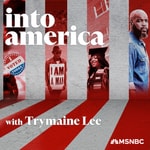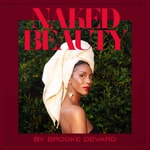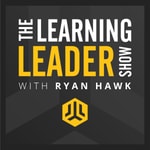Into America – Details, episodes & analysis
Podcast details
Technical and general information from the podcast's RSS feed.

Into America
MSNBC, Trymaine Lee
Frequency: 1 episode/6d. Total Eps: 251

Recent rankings
Latest chart positions across Apple Podcasts and Spotify rankings.
Apple Podcasts
🇺🇸 USA - documentary
20/04/2025#82🇺🇸 USA - documentary
19/04/2025#83🇺🇸 USA - documentary
18/04/2025#67🇬🇧 Great Britain - documentary
17/04/2025#89🇺🇸 USA - documentary
17/04/2025#55🇺🇸 USA - documentary
12/04/2025#97🇺🇸 USA - documentary
10/04/2025#97🇩🇪 Germany - documentary
11/03/2025#92🇺🇸 USA - documentary
14/02/2025#95🇺🇸 USA - documentary
13/02/2025#95
Spotify
No recent rankings available
Shared links between episodes and podcasts
Links found in episode descriptions and other podcasts that share them.
See all- https://www.instagram.com/p
11467 shares
- https://blacklivesmatter.com/
418 shares
- https://www.msnbc.com/intoamerica
389 shares
- https://www.washingtonpost.com/
68 shares
- https://twitter.com/intoamericapod
71 shares
- https://twitter.com/JamilahLemieux
13 shares
- https://twitter.com/BreeNewsome
3 shares
RSS feed quality and score
Technical evaluation of the podcast's RSS feed quality and structure.
See allScore global : 63%
Publication history
Monthly episode publishing history over the past years.
Uncounted Millions BONUS: Nikole Hannah-Jones & Michael Harriot Live
vendredi 31 mai 2024 • Duration 01:06:53
In a follow up to the series Uncounted Millions: the Power of Reparations - which chronicled the remarkable story of Gabriel Coakley, one of the only Black Americans to ever receive reparations for slavery – Trymaine Lee hosted a live discussion and debate on the future of reparations for Black Americans at the 92nd Street Y on May 29th, 2024. Trymaine was joined onstage by Pulitzer-prize winning journalist and creator of the 1619 Project, Nikole Hannah-Jones, and author and columnist at thegrio.com, Michael Harriot. The conversation ranged from the case for reparations today...what might be owed and who should qualify...and what might it take for legislation to finally break through.
Join Into America at the 92nd Street Y
mardi 14 mai 2024 • Duration 01:22
Into America has a live show coming up! Pulitzer prize-winning writer Nikole Hannah-Jones and acclaimed author and columnist Michael Harriot will join host Trymaine Lee onstage at the 92nd St Y in New York City on Wednesday May 29th. As a follow up to our “Uncounted Millions” series, Trymaine, Nikole, and Michael will grapple with what reparations could and should look like for Black Americans going forward. You can join us in-person or via live stream.
Get your tickets now while still available.
For more:
Uncounted Millions: The Power of Reparations
Michael Harriot’s columns at theGrio
BONUS: Trymaine Lee Joins "Why Is This Happening?" Live in Chicago
mardi 17 octobre 2023 • Duration 01:20:39
Chris Hayes is on tour with his podcast "Why Is This Happening?" for a series of live shows. In Chicago, he celebrated 50 years of hip-hop at the House of Blues. He was joined by scholar Imani Perry, rapper Vic Mensa, and "Into America" host Trymaine Lee. Trymaine talked about why this music has meant so much to him throughout his life, why it matters for Black America - and all Americans, and what new tidbits he learned while making our "Street Disciples" series earlier this year.
Plus, a quick update on "Into America."
For a transcript of the episode and to hear more "Into America" or "Why Is This Happening?" please visit msnbc.com/podcasts.
Take a Look, it's in a (Banned) Book
jeudi 23 décembre 2021 • Duration 31:29
Jerry Craft’s graphic novel New Kid has won multiple awards, made the New York Times Best Sellers List, and is beloved by children across the country.But this year, New Kid made headlines for a different reason when a Texas school district pulled the book from its shelves after a white parent complained that it promoted Critical Race Theory and Marxism.
Craft was surprised. The story is based on his own experiences as a young Black kid attending a mostly white private school in New York City. “I had to Google Critical Race Theory and try to find out how I was, how I was teaching it,” he tells Into America.
New Kid was born in part because Craft felt that stories about Black kids tend to dwell on trauma instead of normal life. "I just wanted to have kids where the biggest dilemma in their life is if they wanted to play PlayStation or Xbox, or what movie they wanted to go see, you know, as opposed to always having the weight of the world,” he says. “Those are important stories, but I think we have to give kids things to aspire to and to dream."
The school district reinstated New Kid after a review, but the ordeal raised old questions about what kind of books are challenged in schools, and who gets to decide what is appropriate for children.
Host Trymaine Lee’s 9-year-old daughter Nola read New Kid for her summer reading, and she loved it. Trymaine brings her on the show to talk about the book and representation in children’s literature.
“I mean, obviously, if you grow up in a world where you see yourself, that might tell you like, I can't do this, I'm not able to do this, or I'm not capable of this,” she tells her dad. “So I think that in general, just seeing people that look like you and representation as a whole is very important.”
For a transcript, please visit https://www.msnbc.com/intoamerica.
Please follow and share the show on Twitter, Facebook, and Instagram, all with the handle @intoamericapod.
Thoughts? Feedback? Story ideas? Write to us at intoamerica@nbcuni.com.
Further Reading and Listening:
Le Petit Problème Noir
jeudi 16 décembre 2021 • Duration 35:16
In the 1920s, Josephine Baker escaped the violent racism of in the United States to seek refuge in Paris, like so many other Black American creatives have done over time. Baker found that France welcomed her, and the freedom she found there helped her become an international sensation in dancing, singing, and acting.
Baker eventually became not only a French citizen but a decorated hero in the French Resistance during World War II. She also continued to speak out against racism in her home country, and was the only woman on the official speakers list at the 1963 March on Washington.
All of this helped Baker become the first Black woman, first American, and first entertainer inducted into the Panthéon in Paris, one of the greatest honors bestowed in France. On this episode of Into America, host Trymaine Lee talks about the significance of this honor with Ricki Stevenson, a Black American whose own move to Paris in the 1990s was inspired by Baker, and who has been fighting for more recognition for Baker here in the States.
During the induction ceremony last month, French President Emmanuel Macron called Baker “ever fair, ever fraternal, ever fraternal, and ever French,” and held her up as a shining example of French universalism: “Being Black didn’t take precedence over being American or French. She was not fighting in the name of a Black cause, no she was fighting to be a free citizen, one who lived in dignity and completely free.”
But France’s relationship with race is much more complicated than that. Rokhaya Diallo, a French journalist, author, and activist, tells Into America that Macron’s words dilute Baker’s own contributions to civil rights, and also obscure the racism that Black French people like her experience on a daily basis.
For a transcript, please visit https://www.msnbc.com/intoamerica.
Thoughts? Feedback? Story ideas? Write to us at intoamerica@nbcuni.com.
Further Listening:
EDITOR’S NOTE: After this episode published, we did hear back from a representative of the French Embassy in Washington, DC. Visit our website to read a summary of their statement.
Rev. Sharpton, Ben Crump, and the Pursuit of Justice
jeudi 9 décembre 2021 • Duration 31:48
Looking back on 2021, it felt like maybe Black Americans got closer to knowing justice.In April, Derek Chauvin was found guilty of murdering George Floyd. And the day before Thanksgiving, three white men were found guilty of murdering Ahmaud Arbery.
But 2021 wasn’t all about victories.
Last month, a jury in Wisconsin cleared Kyle Rittenhouse of multiple homicide charges after he shot and killed two people at a Black Lives Matter protest in 2020. Rittenhouse, who says he brought a semi-automatic rifle to the protest to “protect property,” successfully argued that he fired his weapon in self-defense.
On this episode of Into America, Trymaine Lee is joined by two of today’s most prominent civil rights leaders to explore whether Black people in this country can ever experience true justice.
Reverend Al Sharpton, the founder of the National Action Network and host on MSNBC, says while there were setbacks, there was plenty to celebrate in 2021. “I think that we ought to mark those victories we get, so people will know we're not fighting alone.”
Attorney Ben Crump, who represented both families of Ahmaud Arbery and George Floyd this year, agrees. “We're continuously on this journey. We take sometimes some steps forward and then there are going to be steps back.” But the guilty verdicts this year, he says, "give us hope for America.”
For a transcript, please visit https://www.msnbc.com/intoamerica.
Thoughts? Feedback? Story ideas? Write to us at intoamerica@nbcuni.com.
Further Listening:
Ebony & Ivy
jeudi 2 décembre 2021 • Duration 34:38
Although Harvard is one of the Blackest Ivy League schools, Black students still make up just 11 percent of the student body. Many Black students at Harvard experience a level of culture shock when they first arrive to such a historically white space. There’s the whiteness of the university today, but also the institution’s connection to slavery and white supremacy.
This culture shock can be doubled for Black students who trace their lineage to enslaved people in this country, often called Generational African Americans at Harvard.Even though the university has started an initiative to address and understand its ties to slavery, and has made increasing diversity on campus a priority for decades, it’s estimated that less than a third of Black students at Harvard are Generational African Americans.
But in its publicly released demographics, Harvard doesn’t distinguish between the different kinds of Blackness within the diaspora. And Black students say that’s an issue.
On this episode of Into America, Trymaine Lee speaks with three studentsfrom the African diaspora on campus: Mariah Norman, a first year who is Generational African American, Ife Adedokun, a first year whose parents immigrated from Nigeria, and Kimani Panthier, a second year whose parents immigrated from Jamaica.
The group talks about what it’s like to be Black at Harvard,and the nuances of Black identity within the diaspora on campus. They tell Trymaine how the university could better support them, and how they find community from each other.
For a transcript, please visit https://www.msnbc.com/intoamerica.
Thoughts? Feedback? Story ideas? Write to us at intoamerica@nbcuni.com.
Further Reading and Listening:
A Word from the Nap Bishop
jeudi 25 novembre 2021 • Duration 30:34
When Tricia Hersey was in seminary school, she was exhausted. On top of classes and homework, she had a job and a child. She often wouldn’t get to sleep until 2am, and her grades were suffering. Then, one day, as she was researching histories of enslaved people and Black liberation, she had an idea: instead of running herself into the ground, what if she took a nap instead?
That decision turned into a practice of rest in her own life, and then Tricia started sharing it with her community. Soon, her seminary background and her work on rest melded together and in 2016, Tricia founded the Nap Ministry, and became the Nap Bishop.
This week on Into America, Tricia tells Trymaine Lee about how she is helping Black people renounce white supremacist and capitalist ideas of work and reclaim rest as radical resistance.
For a transcript, please visit https://www.msnbc.com/intoamerica.
Thoughts? Feedback? Story ideas? Write to us at intoamerica@nbcuni.com.
Further Reading and Listening:
- The Great Resignation: Why millions of workers are quitting
- The Nap Ministry
- Listen to a musical medication by Tricia Hersey
Changing the Narrative, with Nikole Hannah-Jones
jeudi 18 novembre 2021 • Duration 30:21
The 1619 Project was a career-defining moment for New York Times reporter Nikole Hannah-Jones. Released as a standalone issue of the Times Magazine in August 2019, the project sought to reframe the American narrative, linking our country’s founding to the arrival of the first enslaved Africans on the shores of Virginia.
When the project was initially released it was widely praised as a much-needed corrective to a white-washed version of American history. But there was also pushback from the likes of then-President Trump and Fox News. And some of that pushback was downright nasty.
This week, Penguin Random House is releasing the 1619 Project as a book, audiobook and children’s book. Into America’s Trymaine Lee is one of the book’s contributors. He and Nikole Hannah-Jones sat down to talk about the way the project has shaped America, how it’s shaped her, and the power of changing the narrative.
For a transcript, please visit https://www.msnbc.com/intoamerica.
Thoughts? Feedback? Story ideas? Write to us at intoamerica@nbcuni.com.
Further Reading and Listening:
The Forgotten POW
jeudi 11 novembre 2021 • Duration 46:11
In the first year of the Iraq War, seven soldiers were captured and held prisoner by the Iraqi forces for 22 days. Two of them were women. One was Private First Class Jessica Lynch, whose story of heroism was praised in national headlines when she returned to America. The other woman was Specialist Shoshana Johnson, America’s first Black female prisoner of war. Except you might not remember her.
The two women are friends, and both risked their lives for this country, suffering significant injuries. But the national spotlight on Lynch’s story left Johnson’s heroism overlooked and unrecognized.
On Veterans Day, Trymaine Lee speaks with Shoshana Johnson about her traumatic capture and rescue, her life after the war, and how she wants the military to honor the sacrifices of women of color who wear the uniform.
For a transcript, please visit https://www.msnbc.com/intoamerica.
Thoughts? Feedback? Story ideas? Write to us at intoamerica@nbcuni.com.
Further Reading and Listening:









